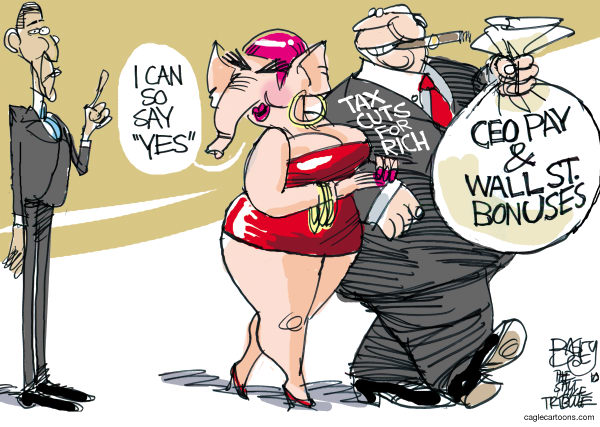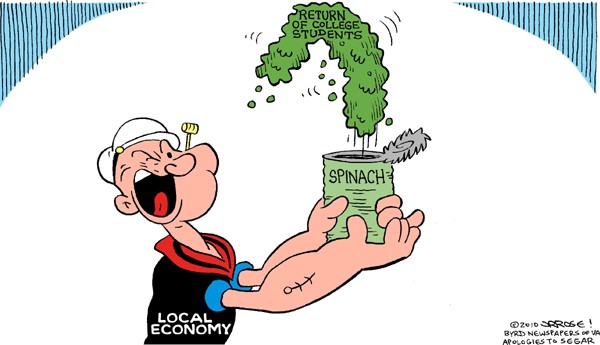In a country with almost 15 million people out of work, it is amazing that any economists still have jobs. This one is their fault first and foremost. Economists are supposed to know about the economy and provide advice on how to avoid disasters before they happen and help us recover from the bad things happen in spite of good advice.
The economics profession has not done well on this simple scorecard. Remarkably, rather than improve their game, economists are now busy dampening down expectations so that the public will not hold them responsible for the state of the economy.
….
Having failed to prevent disaster, economists are now anxious to tell us that there is nothing that they can do to remedy the situation. The story they are pushing is that unemployment is structural, not cyclical – a refrain now echoed by op-ed columnists. This means that people are not unemployed because of a lack of demand in the economy, but rather they are unemployed because there is a mismatch between the available jobs and the skills and location of the available workers.
….
In short, there really is no evidence for a problem of structural unemployment. The problem is that because of bad policy, we don’t have enough demand in the economy. If there is any mismatch of jobs and skills, it is between economists’ positions and the people who fill them.
First off, don’t defer your judgment to someone because they’re “an economist” and sound like they know something. That said, Dean Baker is an economist who has managed to publish a number of books, help draft legislation, and appear on the almighty television on a pretty regular basis despite his tendency to veer from the party line. In the article quoted above, he links a study done by the Federal Reserve that concluded that economists could not have been expected predict the current financial crisis, citing him as one of the people who did predict it:
One of the ï¬rst prominent housing pessimists was Dean Baker of the Center for Economic and Policy Research in Washington, who in 2002 wrote that:
“In the absence of any other credible theory, the only plausible explanation for the sudden surge in home prices is the existence of a housing bubble. This means that a major factor driving housing sales is the expectation that housing prices will be higher in the future. While this process can sustain rising prices for a period of time, it must eventually come to an end. (Baker 2002, p. 116).
However Dean Baker and the others that made surprisingly accurate predictions were actually wrong because:
The “Fundamental Theorem of Asset Pricing†implies that the evolution of asset prices is, to a ï¬rst approximation, unpredictable.
That’s pretty offensive, but it gets even better in a footnote:
[E]conomists both inside and outside academia may have been reticent to make any sort of predictions, for fear of damaging their reputations if they were wrong.
However if they neglected to do so and there was a massive financial crisis, their reputations are just great and they shouldn’t shy away from making policy recommendations that will affect the livelihood of millions. I’m not sure if it’s outright contempt for people, extreme insularity or both, but this is pretty clearly a problem.  They’ve divided themselves into camps on how to view the unemployment problem, which pushes policy predictions into the future so they can avoid a little embarrassment despite the predictable consequences on the most vulnerable. It’s very telling that both camps have a point and bad policy could come out of either view though it’s absolutely certain for the ones that believe that the only solution to a “structural problem” is just sort of creating unpeople who are just going to have to use the income they don’t have to buy some bootstraps.








